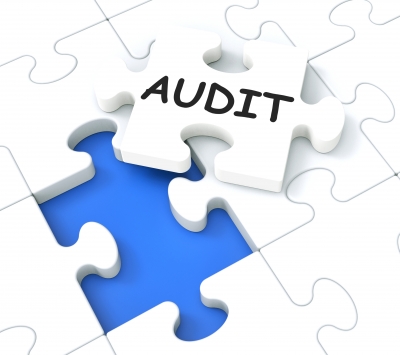PH Customs’ draft post-clearance audit rules out
The preliminary version of the customs administrative order (CAO) enabling the Philippine Bureau of Customs (BOC) to perform post-clearance audit as stipulated under the Customs Modernization and Tariff Act (CMTA) was recently released.
Under the draft CAO, the post-clearance audit function is being returned to BOC after this was transferred to the Department of Finance (DOF) in 2014 with the abolition of the BOC’s Post-Entry Audit Group.
DOF said position papers on the draft CAO will be accepted until October 6, the same day a public hearing on the order will be held.
The proposed CAO covers the post-clearance audit of all records needed to be kept by all importers, beneficial or true owners of imported goods, customs brokers, agents, and locators as a compliance and revenue measure.
The requirement is contained in Sections 1003 (a), (b), and (c), Title X of the CMTA, and by the Prior Disclosure Program (PDP). The PDP is based on international best customs practice and authorizes the customs commissioner “to accept prior disclosure by importers of errors in goods declaration resulting in deficiency in duties and taxes on past importations.”
The CAO aims to implement post-clearance audit under a regime of informed compliance, and to promote compliance with customs laws and regulations by providing a non-punitive facility for importers to voluntarily disclose or report plain errors or innocent mistakes in their goods declarations and payment of duties, taxes, and other charges.
All importers must store records of all their importations, books of accounts, business and computer systems, and customs commercial data including payment records.
Customs brokers and others engaged in customs clearance and processing are also required to keep copies of their transaction records.
Locators likewise have to keep records of all their activities, including records on imported goods withdrawn from zones into the customs territory.
“Importers, brokers, and locators are required to keep the records at their principal place of business for a period of three years from the date of importation,” the draft CAO said.
The proposed rule said the record-keeping is designed to verify the accuracy of the transaction value declared in the import entry by the importers or customs brokers. Its other purposes include for the conduct of audit examination, inspection, verification, or investigation of the records pertaining to specific transactions or to the adequacy and integrity of the manual or electronic systems used to create or store such records. It is also to facilitate collection of the proper duties and taxes.
Within three years of the date of final payment of duties and taxes or customs clearance, the BOC “may conduct an audit examination, inspection, verification, and investigation of records pertaining to any goods declaration, which shall include statements, declarations, documents and electronically generated or machine readable data, for the purpose of ascertaining the correctness of the goods declaration and determining the liability of the Importer for duties, taxes and other charges, including any fine or penalty, to ensure compliance with this CAO.”
The draft order said post-clearance audit of importers will commence when firms are selected by a computer-aided risk management system, the parameters of which are to be based on objective and quantifiable data.
BOC’s Management Information System and Technology Group will design and establish the risk management system, to be approved by the BOC Commissioner.
Customs brokers and importers’ duly authorized agents may be audited to validate audits of their importer-clients and fill information gaps revealed during an audit of their importer-clients.
The Post Clearance Audit Group (PCAG) shall prepare a set of post-clearance audit procedures—for approval of the Commissioner—to govern the audit system and procedure as well as the audit examination itself to ensure fairness and transparency.
“After the Post Clearance Audit is completed, the affected goods declaration may be altered or modified to conform to the findings,” the draft CAO stated.
Penalties and recourse
Failure to keep records and pay the correct duties and taxes, as well as refusing access to the records will merit penalties, from suspension or cancellation of accreditation and imposing of surcharges to holding of shipments and criminal prosecution.
The importer adversely affected by the assessment issued by the PCAG and approved by the commissioner may file for reconsideration with the commissioner within 15 days of receipt. If the request is denied, the importer may appeal to the Court of Tax Appeals within 30 days of receipt of the adverse ruling or decision.
Meanwhile, any importer, without waiting for an audit notification letter (ANL), may avail of the PDP. An importer who has received an ANL may still avail of the PDP provided several identified conditions under the CAO are satisfied. An approved applicant of the PDP is eligible for a reduced penalty of 10% of the deficiency duties and taxes, the draft CAO noted. – Roumina Pablo
Image courtesy of Stuart Miles at FreeDigitalPhotos.net









